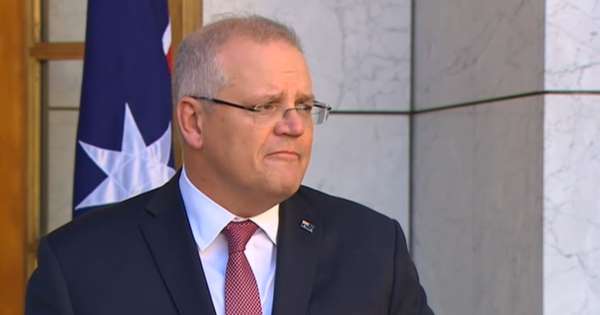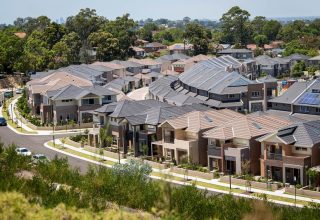
What can we do with Australia’s property market, with soaring prices and rental shortages in many regional areas of Australia, from WA’s Pilbara to Hobart in Tasmania?
While more than 60 per cent of Australians own their own home, Australian Bureau of Statistics data shows home-ownership rates for people aged under 40 are declining, part of a trend of intergenerational inequality and a growing gap between the haves and have nots.
Building more houses is often given as the answer to easing housing stress in areas of high demand but it’s not that simple, argue the four housing policy and economic experts the ABC spoke to.
Here are three policy areas they suggest Australia needs to address if we want to solve the housing crisis.
A national housing policy
One housing policy expert said Australia had not had a national strategy since World War II, and the federal government needed to act quickly to form one and not leave it up to the states.
“There is no national housing policy and there hasn’t really been a national housing policy, that you could call that, since 1945,” said Hal Pawson, a housing professor at the University of NSW.
Professor Pawson, at the City Futures Research Centre UNSW, went on to say: “We don’t necessarily need to spend more money on housing as a country, we need to spend more smartly”.
“We have to measure the problem and commit to a strategy which addresses what we find.”
We also need to have “brave conversations” according to Swinburne University Professor of Housing Policy, Wendy Stone, who said just building more housing did not help to address inequality.
She pointed to Australians generating their wealth from housing, and said we should explore “setting boundaries” around that investment.
“How can we retain existing housing stock in regional areas for housing and home, rather than so much of it being held as vacant investment or being used as tourism investments?” she said.
“We need some urgency to establishing some parameters to reduce spiralling inequality.”
She argued a limit of how many properties any one person could own could help keep house prices lower and could take the pressure off rental shortages — especially as the federal government’s COVID support measures come to an end.
What about rental relief?
Professors Stone and Pawson argue that in the short term, the federal government needs to keep COVID emergency interventions such as JobKeeper. and rental eviction moratoria to prevent thousands of people becoming homeless.
“What we can see in our data and our analytics, is that a very large number of households are still heavily dependent on these crisis COVID response mechanisms and it is absolutely premature to withdraw these mechanisms,” Professor Stone said.
A recent survey conducted by Professor Pawson’s team estimated 75,000 tenants across Australia had accrued rent debt and he argued the Australian economy was yet to feel the full impact of COVID shutdowns.
“By the middle of this year, we may see some of that sort of stored up trouble … we know that at least a quarter of renters did lose income,” he said.
Rachel Ong ViforJ, Professor of Economics at Curtin University, said she would like to see rental reform for longer-term change, including increasing the Commonwealth Rent Assistance, and making sure it was better targeted to those who need it.
“Another major issue has to do with tenure security within the private rental sector,” Professor Ong ViforJ said.
“More Australians are renting, including older Australians. However, Australia’s private rental sector is lightly regulated and landlords are allowed ‘without-grounds’ lease termination.
“We need to see policies implemented that improve tenure security for private renters.
“If the government can implement policy reforms that would make home ownership more affordable, that would also free up some rental properties as some renters became homebuyers.”
Subsidise home buying, like Singapore?
Economist Cameron Murray said there was little political will to act to decrease housing prices, particularly among households that use property as investment.
“The political reality is that we want higher and rising house prices, it’s a political winner and doing something to stop that is political suicide,” he said.
“Australian housing is worth about $7 trillion and a policy that effectively reduced the price of housing, even 20 per cent would wipe off $1.5 trillion of value from those 70 per cent of households who own their own home.”
Dr Murray said in the next 20 or so years as the Baby Boomer generation died, more houses would be moved through the market as inheritances were divided and sold, but that would not be leaving everyone with a house.
“The problem is if your parent never bought a house … you’re entrenched into intergenerational inequality by housing because there are no opportunities for you [to buy a house] independently of [parents].”
Increasing stock in social housing should be part of a national housing policy, said Professor Pawson, who pointed out that Australia’s social housing numbers had remained stagnant over the years despite a growing population, meaning its capacity to house those in need had reduced over the years.
Professors Stone and ViforJ agreed that increasing social housing stock was needed to help those most in need of secure housing, but Dr Murray said perhaps Australia should rethink its whole approach to subsidising housing.
He pointed to Singapore where about 80 per cent of the population was able to buy a subsidised home through the government.
“To me, Singapore’s public housing model is probably one of the best interventions,” Dr Murray said.
“It’s essentially a public, subsidised doorway to get into the market.”
Without change, inequality will grow
House prices and rising rents are a major problem if you are a renter who can’t afford to buy a house, but are probably not your concern if you own property.
However, all four experts warn that if we let housing inequality continue to grow unabated, it will affect everyone.
“A continual upward trend in house prices that outstrip wage growth should be a concern for homeowners, especially those carrying a mortgage,” Professor ViforJ said.
“Highly indebted homeowners are more likely to fall behind on mortgage payments if they were, to say, become unemployed or go through a period of financial difficulty.”
Professor Stone said if the federal government did not do more to balance the housing market, Australia would have an “increasing pool of losers and a smaller, wealthier group of property winners”.
“Without intervention we will see an increase in homelessness.
“We know that an unequal society with a high degree of economic polarisation is going to undermine our economy in the longer term.”






































 The World Observer Media produces a daily online newspaper, a daily Arabic online newspaper and a monthly printed Arabic/English magazine and a weekly printed Arabic/English newspaper.
The World Observer Media’s mission is to entertain and educate all generation from the Ethnic Communities in Australia, who are interested in local, national and foreign information.
The World Observer Media produces a daily online newspaper, a daily Arabic online newspaper and a monthly printed Arabic/English magazine and a weekly printed Arabic/English newspaper.
The World Observer Media’s mission is to entertain and educate all generation from the Ethnic Communities in Australia, who are interested in local, national and foreign information. 


